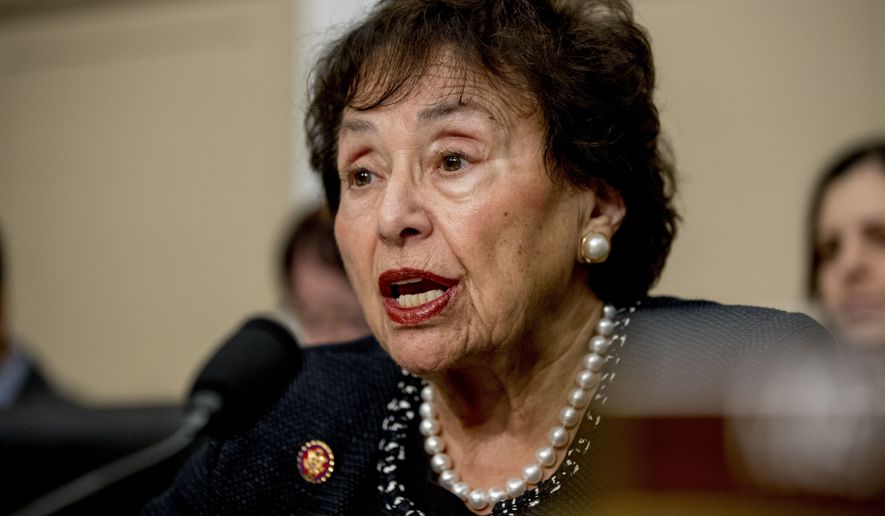President Trump’s move to temporarily suspend U.S. payments to the World Health organization is not legal, according to a top aide for Democrats on the House Appropriations Committee.
The Trump administration disagreed, saying they have wide latitude in how they allocate congressionally-authorized spending.
But the president does not have the “unilateral authority” to withhold the U.S. contribution to the WHO, said Evan Hollander, a spokesman for Appropriations Committee Chairwoman Nita Lowey, New York Democrat.
“In a desperate attempt to deflect blame, President Trump is violating the same spending laws that brought about his impeachment,” Mr. Hollander said. “Moreover, refusing to fund the WHO is a foolish step that only weakens international tools to fight this pandemic and future global health emergencies.”
House Speaker Nancy Pelosi also called the move “illegal.”
The Government Accountability Office (GAO) had concluded in January that Mr. Trump violated the federal Impoundment Control Act (ICA) when he held up military aid to Ukraine last year because the law doesn’t allow spending deferrals for policy reasons.
That series of actions led to the Democratic-controlled House’s voting to impeach the president in December for obstruction of Congress and abuse of power, saying Mr. Trump withheld the funds to try to undermine the presidential campaign of Joseph R. Biden, who is now the likely Democratic nominee.
The GOP-controlled Senate voted to acquit Mr. Trump in February.
A senior administration official said Mr. Trump’s decision involves two pots of funding — assessed contributions that are “dues” to the U.N. for bureaucratic and operating costs, and then voluntary contributions that are akin to contract money for the World Health Organization to conduct projects as they are needed.
The administration already paid an initial tranche of assessed dues of $58 million, yet another $65 million is due in September.
Officials are using Mr. Trump’s 60- to 90-day review period to figure out whether that second payment is worthwhile.
Mr. Trump has decided to redirect voluntary contributions to other organizations that can do the work instead of contracting with WHO for these projects.
The money can add up to $300 million to $400 million in any given year and the decision to direct these funds away from WHO is permanent policy moving forward.
The administration said it had the legal authority to do this because Congress gave it broad authority to spend the money as it sees fit, so long as it fulfills its intended purpose.
Mr. Trump on Tuesday announced the U.S. would halt funding for the WHO pending a review.
He said the group bungled the response to the coronavirus pandemic by too eagerly accepting Beijing’s narrative about the extent of the problem in China, where the virus was first discovered, and by opposing travel restrictions from countries like China.
“The United States has a duty to insist on full accountability,” Mr. Trump said.
Past administrations have also gotten unfavorable rulings from the GAO, which have no real legal force.
In 2016, the GAO said the Obama administration broke the law by illegally diverting billions of dollars in money tied to Obamacare.
The office also said the 2014 prisoner swap for Army Sgt. Bowe Bergdahl broke the law because the Obama administration failed to give Congress a proper heads up on transferring detainees from Guantanamo Bay and improperly used money to facilitate the swap.
• Tom Howell Jr. can be reached at thowell@washingtontimes.com.
• David Sherfinski can be reached at dsherfinski@washingtontimes.com.




Please read our comment policy before commenting.